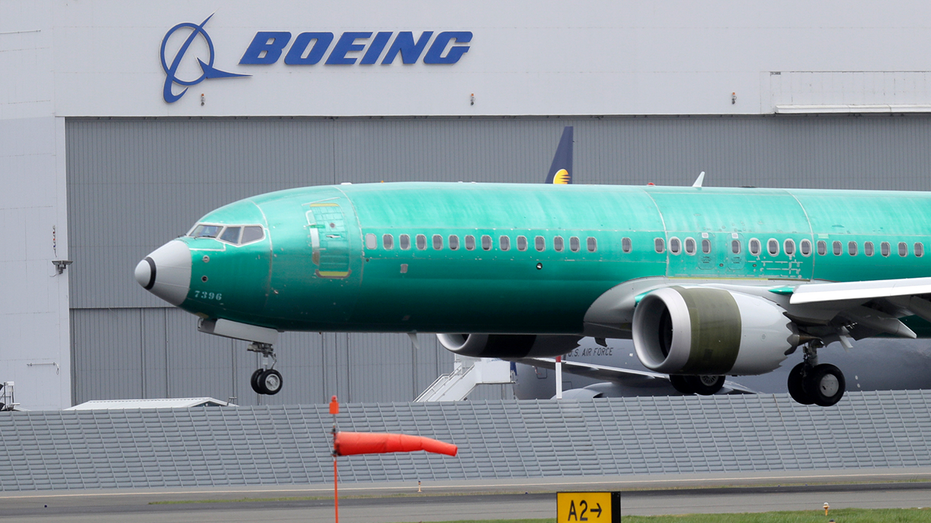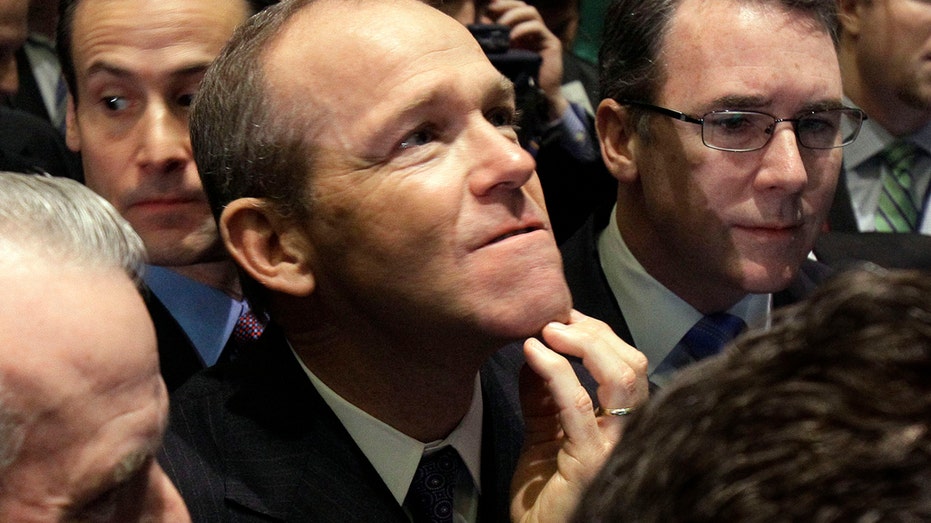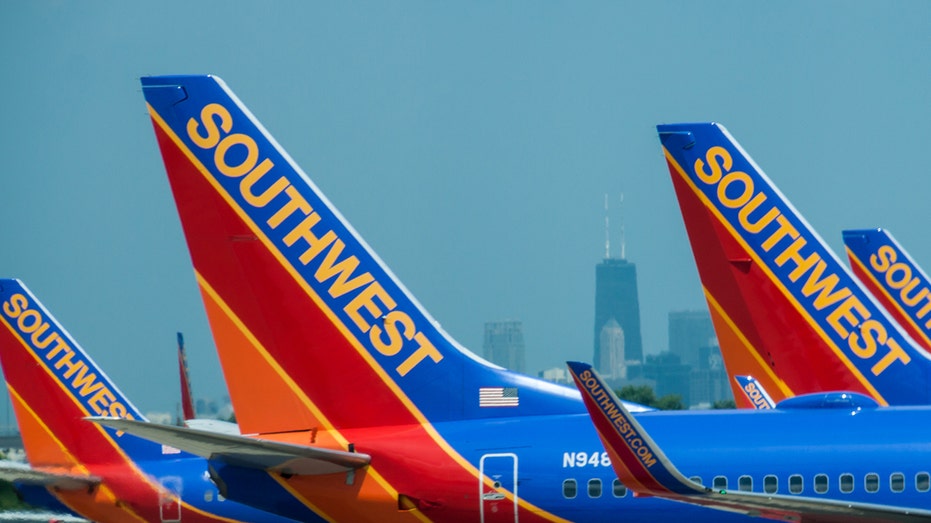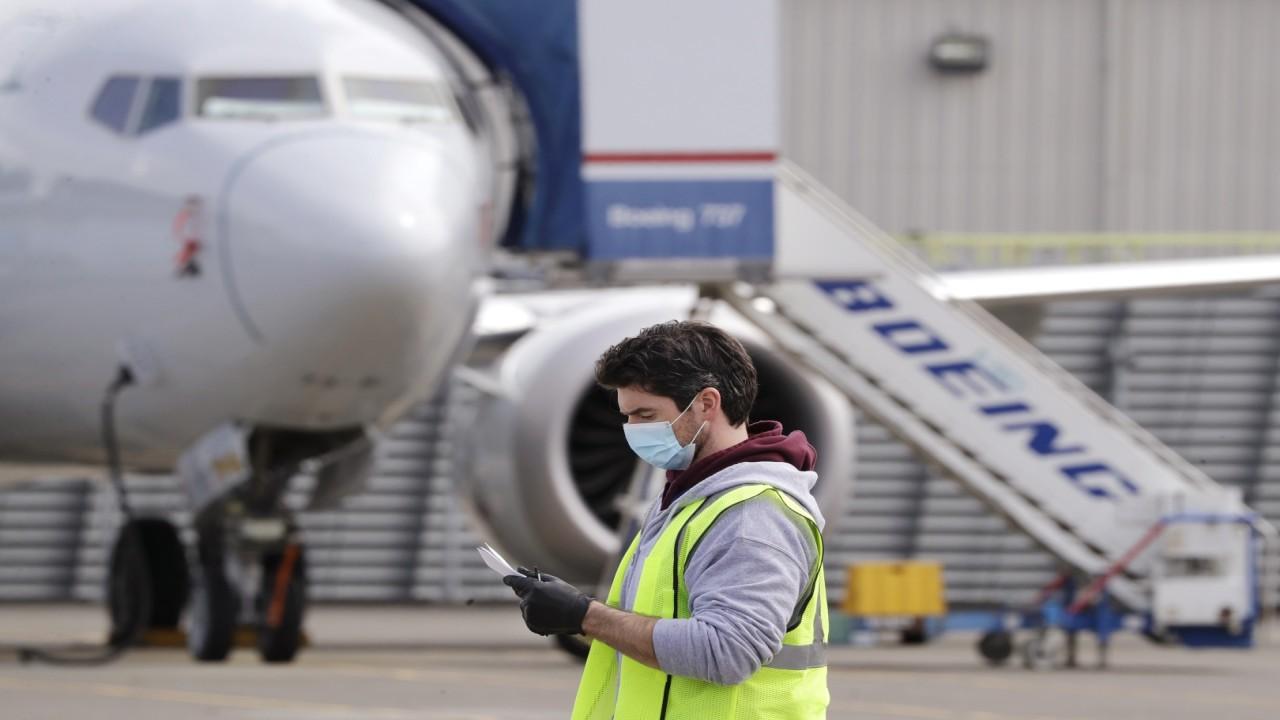Boeing CEO: Could take 5 years for airlines to experience growth again
Boeing will prioritize paying down debt before it considers returning money to shareholders, David Calhoun said
Get all the latest news on coronavirus and more delivered daily to your inbox. Sign up here.
Boeing CEO David Calhoun said Friday it could take years for the aviation industry to return to normal traffic levels and resume growth, both of which have been decimated by the novel coronavirus pandemic.
Major airlines have taken a huge hit due to a reduction in travel brought on by the outbreak of the virus, which forced travelers worldwide to observe stay-at-home orders and brought air traffic to a standstill.
| Ticker | Security | Last | Change | Change % |
|---|---|---|---|---|
| BA | THE BOEING CO. | 243.03 | +6.08 | +2.57% |
| LUV | SOUTHWEST AIRLINES CO. | 54.25 | +1.75 | +3.33% |
"If I survey all of our customers and I start here in the U.S., and of course we do ... most are trying to dial in a return of about 30 [percent] to 50 percent by the end of this year," Calhoun said. "A lot's going to depend on how the public responds to the safety of airline cabins, etc."

A Boeing 737 MAX airplane. (Photo: Associated Press)
Calhoun added that unless a vaccine is developed soon and widely distributed, it will take about three years to "slowly crawl back to the traffic levels" the industry experienced in 2019. It will then take "another two years to get back on the growth curve that the industry has enjoyed for almost two decades."
SOUTHWEST AIRLINES JTELINER HITS, KILLS MAN ON TEXAS AIRPORT RUNWAY
He said Boeing will prioritize paying down debt before it considers returning money to shareholders. The Chicago-based aerospace giant announced in March it would suspend its dividend.
"Until we get back to the balance sheet we had before the virus and before the [737] Max, and then when we get to that level, we will reconsider and think about how we return money to shareholders and reestablish our dividend," he said.
SENATORS URGE US AIRLINES TO ISSUE TICKET REFUNDS AFTER BAILOUT
After the Sept. 11, 2001, terrorist attacks, airline traffic took nearly three years to recover after sliding 43 percent, and today's airline traffic could take just as long to recover from the novel coronavirus pandemic.

Nielsen Company CEO David Calhoun, center, watches progress as he waits for the company's IPO to begin trading, on the floor of the New York Stock Exchange. (AP Photo/Richard Drew, File)
The $2.2 trillion CARES Act set aside $25 billion in grants and loans for U.S. airlines, and about 90 percent of that money is expected to go to the nation’s six largest airlines – American, United, Delta, JetBlue and Southwest – according to a Reuters report that cited people familiar with the matter. About 275 companies have applied for the aid.
SOUTHWEST AIRLINES PREPS CORONAVIRUS REBOUND BY TARGETING BUSINESS TRAVELERS
Boeing said it would not seek government aid on April 30 after raising $25 billion in a bond offering. The company posted a $641 million first-quarter loss last week, which it attributed to both the ongoing grounding of its Max jets and the pandemic.
BOEING EYES MAJOR BOND ISSUE TO RAISE FUNDS
How long a rebound might take for U.S. carriers today is impossible to tell. The value of the NYSE Arca Airline Index has plunged 57 percent to $48.6 billion since COVID-19 was first reported in the U.S. on Jan. 21.

Southwest Airlines aircraft on the move with the Chicago skyline in the background. (Photo: iStock)
Meanwhile, TSA screened 154,080 people on March 30, when federal and state governments issued travel restrictions. That number reached a low of 87,534 passengers on April 14. The State Department issued a Level 4 travel advisory on March 19 urging Americans not to travel abroad under any circumstances.
CLICK HERE TO GET FOX BUSINESS ON THE GO
Ticket prices are also expected to see a drastic increase as social distancing measures have some airlines keeping middle seats empty, the International Air Transport Association said Tuesday.
"With fewer seats to sell, unit costs would rise sharply," the global aviation association said. "Compared to 2019, air fares would need to go up dramatically—between 43% and 54% depending on the region—just to break even."
CLICK HERE TO READ MORE ON FOX BUSINESS
FOX Business' Jonathan Garber and James Leggate contributed to this report.




















